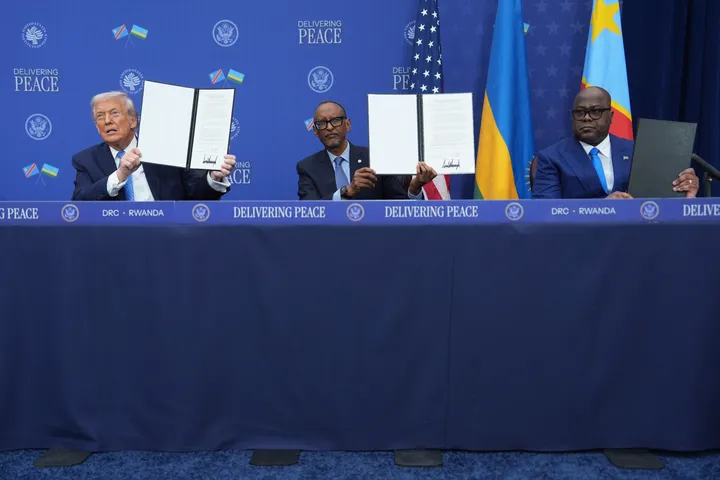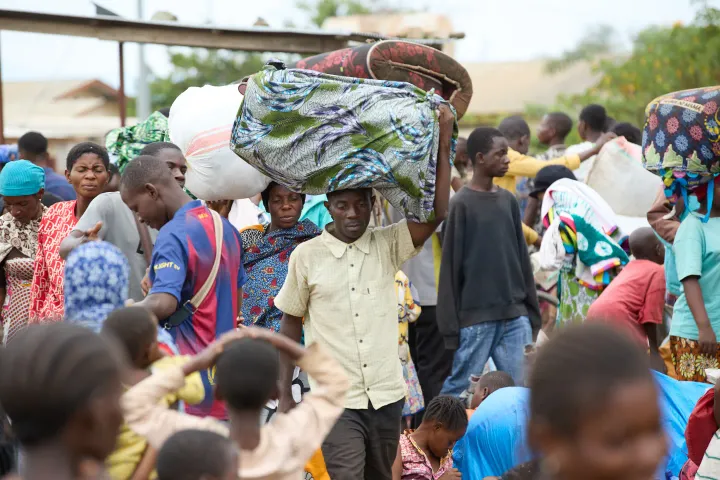Voting is underway in the Democratic Republic of Congo to elect president, lawmakers and provincial councilors following a tense campaign.
Delays have been reported in several towns in rebel-plagued east and in the capital, Kinshasa, where voting materials had not arrived at polling stations and voter lists were not published.
"It is a total chaos," said presidential candidate Martin Fayulu who came second in the 2018 presidential election.
Fayulu said that while the vote was well-organised in the upmarket Gombe district in the capital where he voted, it was not the case in the rest of the country.
Displaced people protest
"If all the people don't vote in all the polling stations indicated by the CENI (national election commission), we won't accept these elections," Fayulu warned, adding that he would be at the forefront of the protest.
In the eastern cities of Goma and Beni, some people struggled to find their names on voter lists, which were only made available at their polling stations on Wednesday morning, according to Reuters witnesses.
In Bunia, also in eastern Congo, security forces fired warning shots to disperse protesters after a voting centre was vandalised and kits destroyed, a Reuters reporter said.
A provincial election commission official told journalists that people displaced by violence in the region had protested because they wanted to vote in their hometowns.
Stability hopes
For months, Congo's national election commission has insisted it would deliver a free and fair vote as promised across Africa's second-largest country.
About 44 million Congolese are registered to take part in the voting, which also includes regional ballots.
As voting day neared, the authorities sought extra helicopters, raising concerns about the commission's ability to open polling stations in areas otherwise unreachable due to bad roads or a lack of security.
Full provisional results are expected by Dec. 31.
President Felix Tshisekedi is competing against 18 opposition challengers in the hope of a second term running the mineral-rich country.
Opposition candidates have wooed voters with pledges to bring stability, peace, and the economic development they say was absent from Tshisekedi's first term.
Electoral transparency
They and religious and civil society electoral observers have sounded the alarm about electoral transparency, highlighting issues including the voter list and illegible ID cards.
The election commission has repeatedly rejected the opposition's allegations of fraud.
The election will be decided in a single round, requiring a simple majority of the vote to win. The final run-up to the vote has been particularly fraught. Polls are due to close at 1600 GMT.
























